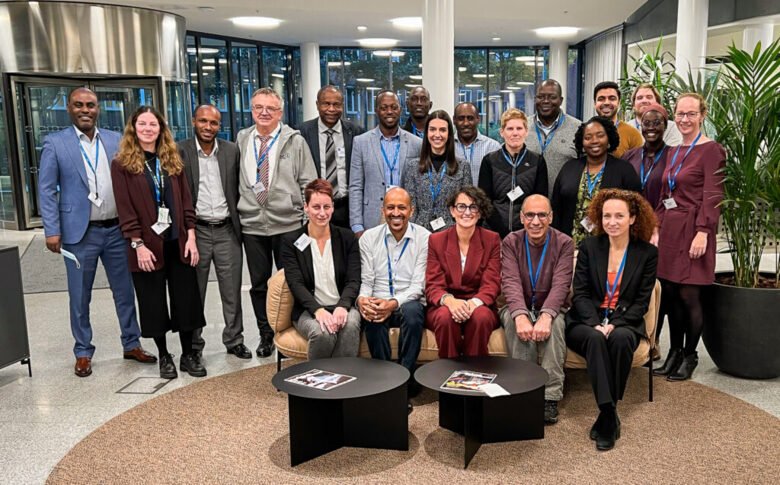Launch of EU project Holicare aiming to facilitate the broad access to diagnosis of respiratory tract infections

In September 2O22 the HoliCare project was launched under the coordination of KTH Royal Institute of Technology in Sweden and gathering 14 partners across Africa and Europe including Karolinska Institutet. The project’s ambition is to tackle the challenge of diagnostics, treatment and prevention of Respiratory Tract Infections (RTIs), the leading cause of death in Low- and Middle-Income Countries (LMICs).
Respiratory Tract Infections (RTIs)
Respiratory tract infections (RTIs) is the world's biggest infectious killer. It is the fifth overall cause of mortality for all ages, and the leading cause of death among children below the age of 5. As with many other diseases Sub-Saharan Africa is disproportionally hit by the disease accounting for 40% of the annual global deaths from RTIs.
Holicare will tackle the technological and non-technological challenges that prevent many patients from accessing high quality healthcare especially in remote or resource-limited areas in Sub-Saharan Africa. The project is aimed at bridging the gap between technological excellence, available infrastructure, human capital and health systems to foster the local uptake of innovative diagnostic technologies in 3 pilot African countries: Ethiopia, Uganda and Senegal.
A Holistic approach to support the massive uptake of innovative diagnostic technologies
The Holicare project aims to develop a holistic approach in healthcare for Sub-Saharan Africa by converging four pillars:
1. Patient management and epidemic surveillance through innovative and complementary diagnostic technologies
2. Capacity building via the transfer of technology and manufacturing
3. Enhancing human capital potential through tailored training
4. Adoption & implementation of innovative diagnostic solutions from local stakeholder engagement.
The technological strategy of Holicare relies on a 2-tiered, digitally interfaced diagnostic approach that will: (1) start in the field using multiplexed lateral flow tests for epidemic surveillance, rapid screening and triage, and referral to hospital only for those who need it; (2) be followed, when needed, by a detailed, differential diagnosis for appropriate treatment selection and therapy monitoring at hospital settings using a POC-Instrument performing nucleic acid amplification (LAMP) for pathogen identification and immunoassays for host biomarker quantitation.
In parallel, complementary non-technological actions will make sure that the digital, manufacturing and educational infrastructures in Ethiopia, Senegal and Uganda will encompass these technology innovations to facilitate future local product development and deployment:
- quality controlled biobanks will be developed for executing reliable clinical studies;
- human capital potential will be enhanced through dedicated high-level training activities for healthcare professionals, researchers and entrepreneurs;
- adoption and implementation activities will prepare a fertile socioeconomic ecosystem and pave the way for the proposed diagnostic solutions to be successfully deployed in diverse health systems.
"We are so excited for this as a continuation of years of work closely with engineers, developers, scientists and end-users in low-income countries, to transform point of care diagnostic uptake where resources are scarce. Our team will be contributing in particular to support with quality controlled biobanks. Biobanks are instrumental to advance global health as they are key to develop novel treatments and diagnostic" says Giulia Gaudenzi, project partner from Karolinska Institutet.
The HOLICARE Consortium is part of the Horizon Europe programme and will run or 3 years.
For more information and news from the project visit the Holicare website.
